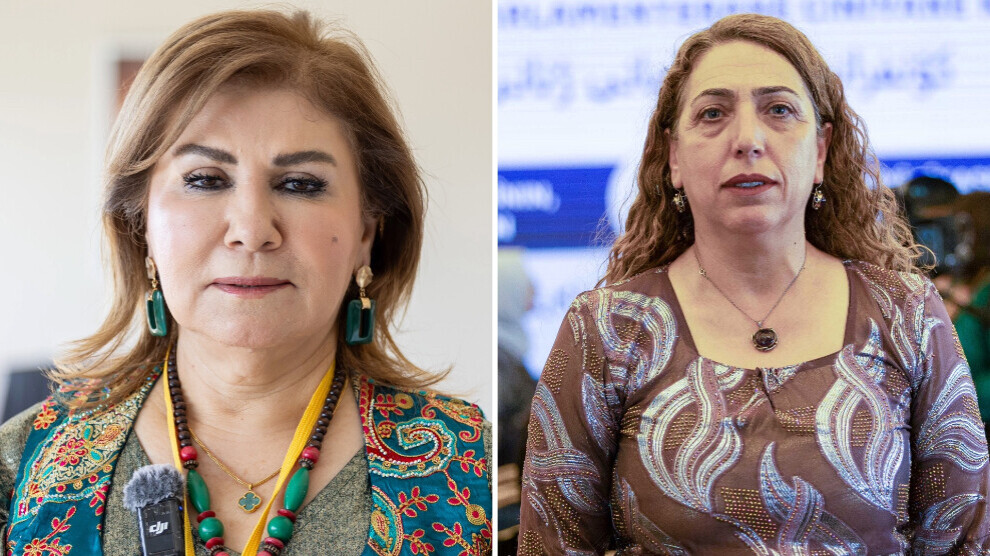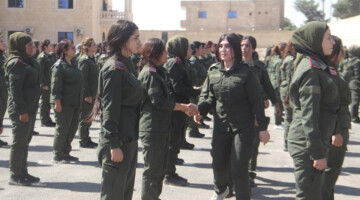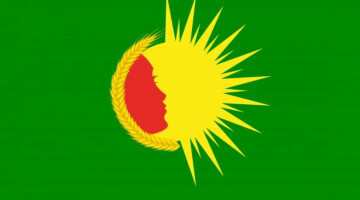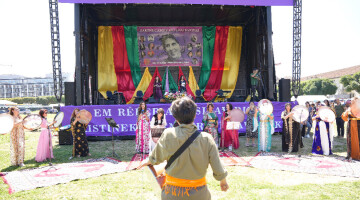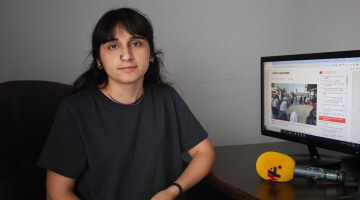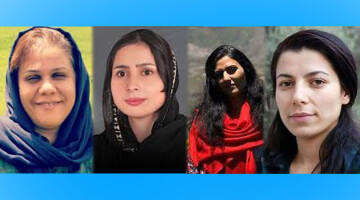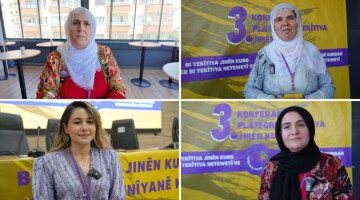The “1st Kurdish Women Parliamentarians Conference” organized by the Free Women's Movement (Tevgera Jinên Azad-TJA) in Amed continues. The two-day conference, held under the slogan “Let's democratize politics, let's build a democratic society,” is attended by many Kurdish women parliamentarians from Kurdistan, the Middle East, and Europe. The women participating in the conference voiced the problems and struggles faced by women and reiterated their message of unity. The female parliamentarians emphasized the importance of the conference, which will result in a joint outcome for Kurdish women in the four parts of Kurdistan, saying, “Women are the pioneers of both peace and the democratic struggle. Kurdish women in the Middle East are setting an example for the world in this regard.”
DEM Party Mardin Deputy Saliha Aydeniz stated that the event was attended by women from all four parts of Kurdistan as well as the diaspora. She emphasized that this conference was of great importance in terms of sharing the experiences of women struggling with their Kurdish identity.
Aydeniz remarked that the conference witnessed discussions on how women's representation in parliaments will combat male-dominated structures and how a common ground for this struggle can be established. Noting that Turkish women also face similar pressures, Aydeniz said, “Women around the world are constantly subjected to violence, oppression, neglection, and denial of their will because of their identity and gender. As Kurdish women, we experience this oppression twice over because of both our identity as women and our identity as Kurds.”
Aydeniz pointed out that the conference also aims to address the pressures on women's identity in the context of the struggle for national identity, saying, "In the current process, the freedom-oriented systems established by women against the authoritarian and fascist regimes in the Middle East serve as examples. Rojava is an important example in this regard. The philosophy of ‘Jin, Jiyan, Azadî’ (Woman, Life, Freedom) developed in Rojava and has become an organizational model that inspires the entire world today. None of us came to parliament through our individual development. We are here today thanks to the struggle waged by women's movements for years. This conference is very important for transforming this struggle into politics, for uniting, and for institutionalizing."
Aydeniz stated that Öcalan’s ‘Call for Peace and Democratic Society’ was one of the main topics of the conference, saying, “Women's leadership is vital in building a democratic society and a dignified, lasting peace. How women in the diaspora and in parliament can lead this process and spread this struggle to society is also one of the important topics of discussion at this conference.”
Finally, Aydeniz assessed the work carried out by TJA as part of a comprehensive struggle for women's freedom: “As Kurdish women, we strive to protect and expand the gains of our people from a women's perspective wherever we are. This conference is an important step that highlights the leading role of women in the Kurdish struggle for freedom, in addition to its political dimension.”
Mahabad Mihemmed, a parliamentarian from South Kurdistan, Iraq, also participated in the women's conference in Amed and shared her experiences. She said the conference was an important platform that highlighted the themes of peace, democracy, and unity.
Mihemmed stated that women have always played a leading role in the peace and democracy process in Northern Kurdistan, saying, “This struggle continues today. We are here to listen to and share these experiences as women.”
Mihemmed emphasized the importance of the conference in promoting women's active participation in parliament and decision-making mechanisms, saying, “I hope that the positive outcomes of this conference will benefit women in both Northern and Southern Kurdistan.”
Peace is a common concern for Kurdish women, said Mihemmed, according to whom the conference in Amed will also serve as a platform to strengthen unity: “Women here share their experiences in democracy and political struggle. This struggle is very important for all of us. We are here to voice the problems we face and find common solutions.”

